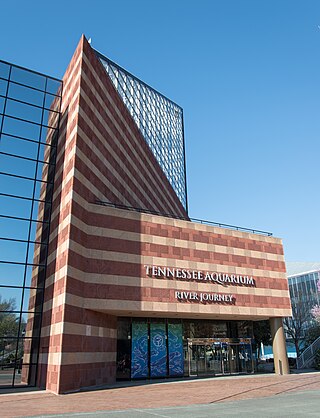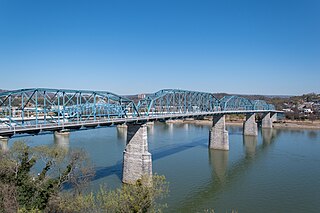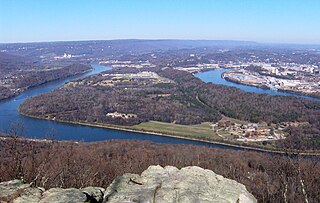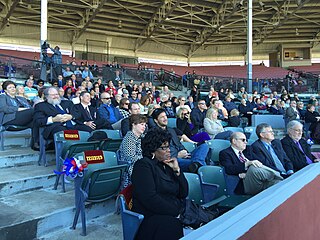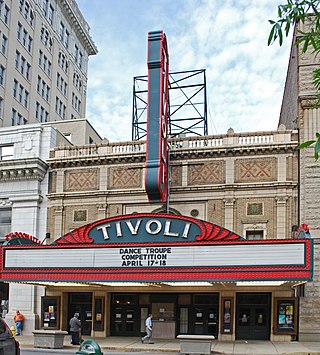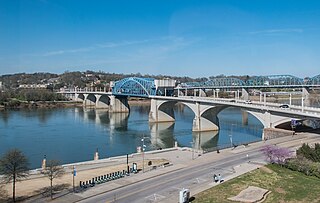7 Sights in Chattanooga, United States (with Map and Images)
Legend
Welcome to your journey through the most beautiful sights in Chattanooga, United States! Whether you want to discover the city's historical treasures or experience its modern highlights, you'll find everything your heart desires here. Be inspired by our selection and plan your unforgettable adventure in Chattanooga. Dive into the diversity of this fascinating city and discover everything it has to offer.
Activities in ChattanoogaThe Tennessee Aquarium is a non-profit public aquarium located in Chattanooga, Tennessee, United States. It opened in 1992 on the banks of the Tennessee River in downtown Chattanooga, with a major expansion added in 2005. The aquarium, which has been accredited by the Association of Zoos and Aquariums (AZA) since 1993, is home to more than 12,000 animals representing almost 800 species.
Built in 1890, the 2,376-foot-long (724 m) Walnut Street Bridge connects Chattanooga, Tennessee's downtown with North Chattanooga. The bridge's main spans are pin-connected Pennsylvania through truss spans. The top chord of these truss spans are configured in five sections, making the spans similar to the Camelback truss design. The bridge is historically significant as an extremely long and old example of its type; according to the Historic American Engineering Record: "The bridge was apparently the first non-military highway bridge across the Tennessee River."
3. Moccasin Bend National Archeological District
Moccasin Bend Archeological District is an archeological site in Chattanooga, Tennessee, that is part of the Chickamauga and Chattanooga National Military Park unit. The National Park Service refers to it as one of the "most unique units found in the entire National Park Service." The area contains remnants of 12,000 years of continuous human habitation and serves as an area with unique cultural significance. For many years, there was little recognition of the historical significance of the area, and years of industrial development occurred on and around sites of archeological importance. After decades of campaigning by concerned citizens, private organizations, local officials, the Friends of Moccasin Bend National Park, and finally a state representative, the area was officially recognized as a National Archeological District in 2003. Moccasin Bend is currently undergoing a process of renovation and restoration that will allow the area to fulfill the National Park Service's mission of preserving "natural and cultural resources" for the "enjoyment, education, and inspiration of this and future generations."
4. Engel Stadium
Engel Stadium is a stadium in Chattanooga, Tennessee. The stadium was built in 1930 and holds 12,000 people. It was the home of the Chattanooga Lookouts until 1999 when they moved to their current stadium, AT&T Field. The former Tennessee Temple University held its home games at Engel after the Lookouts left. Engel Stadium was named for longtime President of the Chattanooga Lookouts, Joe Engel.
5. Tivoli Theatre
The Tivoli Theatre, also known as the Tivoli and the "Jewel of the South", is a historic theatre in Chattanooga, Tennessee, that opened on March 19, 1921. Built between 1919 and 1921 at a cost of $750,000, designed by famed Chicago-based architectural firm Rapp and well-known Chattanooga architect Reuben H. Hunt, and constructed by the John Parks Company, the theatre was one of the first air-conditioned public buildings in the United States. The theatre was named Tivoli after Tivoli, Italy, has cream tiles and beige terra-cotta bricks, has a large red, black, and white marquee with 1,000 chaser lights, and has a large black neon sign that displays TIVOLI with still more chaser lights.
6. Market Street
The Market Street Bridge, officially referred to as the John Ross Bridge, is a bascule bridge that spans the Tennessee River between downtown Chattanooga, Tennessee, and the Northshore District. It carries North Market Street, and was named in honor of Cherokee Chief John Ross. The bridge was completed in 1917 at a cost of $1.1 million. In the mid-1970s, the southern terminus of US 127 was moved several miles north to the intersection of Dayton Boulevard and Signal Mountain Boulevard in the nearby suburb of Red Bank.
7. International Towing and Recovery Hall of Fame and Museum
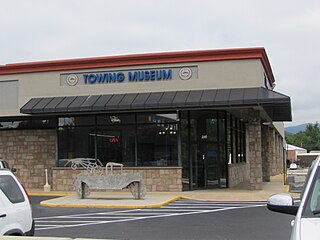
The International Towing & Recovery Hall of Fame & Museum features restored antique wreckers and equipment from the tow truck industry. Located in Chattanooga, Tennessee, the museum also displays related toys, tools, equipment, and pictorial histories.
Share
How likely are you to recommend us?
Disclaimer Please be aware of your surroundings and do not enter private property. We are not liable for any damages that occur during the tours.
